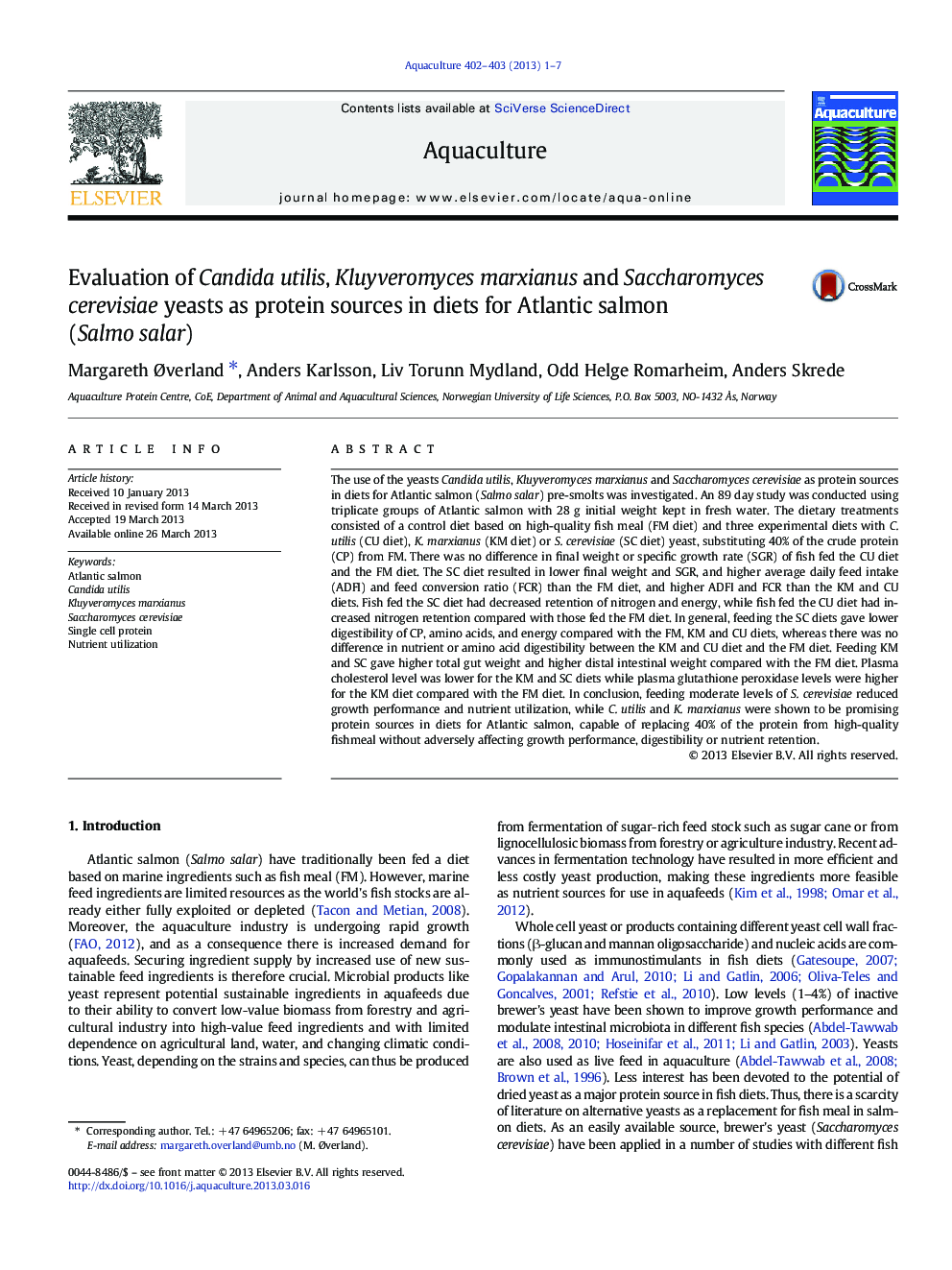| Article ID | Journal | Published Year | Pages | File Type |
|---|---|---|---|---|
| 2422112 | Aquaculture | 2013 | 7 Pages |
•We evaluated three yeast products as protein sources in diets for Atlantic salmon.•We measured growth, digestibility, nutrient retention, blood and organs.•Both C. utilis and K. marxianus were good protein sources.•The results demonstrate the potential of yeast as a sustainable protein source.
The use of the yeasts Candida utilis, Kluyveromyces marxianus and Saccharomyces cerevisiae as protein sources in diets for Atlantic salmon (Salmo salar) pre-smolts was investigated. An 89 day study was conducted using triplicate groups of Atlantic salmon with 28 g initial weight kept in fresh water. The dietary treatments consisted of a control diet based on high-quality fish meal (FM diet) and three experimental diets with C. utilis (CU diet), K. marxianus (KM diet) or S. cerevisiae (SC diet) yeast, substituting 40% of the crude protein (CP) from FM. There was no difference in final weight or specific growth rate (SGR) of fish fed the CU diet and the FM diet. The SC diet resulted in lower final weight and SGR, and higher average daily feed intake (ADFI) and feed conversion ratio (FCR) than the FM diet, and higher ADFI and FCR than the KM and CU diets. Fish fed the SC diet had decreased retention of nitrogen and energy, while fish fed the CU diet had increased nitrogen retention compared with those fed the FM diet. In general, feeding the SC diets gave lower digestibility of CP, amino acids, and energy compared with the FM, KM and CU diets, whereas there was no difference in nutrient or amino acid digestibility between the KM and CU diet and the FM diet. Feeding KM and SC gave higher total gut weight and higher distal intestinal weight compared with the FM diet. Plasma cholesterol level was lower for the KM and SC diets while plasma glutathione peroxidase levels were higher for the KM diet compared with the FM diet. In conclusion, feeding moderate levels of S. cerevisiae reduced growth performance and nutrient utilization, while C. utilis and K. marxianus were shown to be promising protein sources in diets for Atlantic salmon, capable of replacing 40% of the protein from high-quality fishmeal without adversely affecting growth performance, digestibility or nutrient retention.
